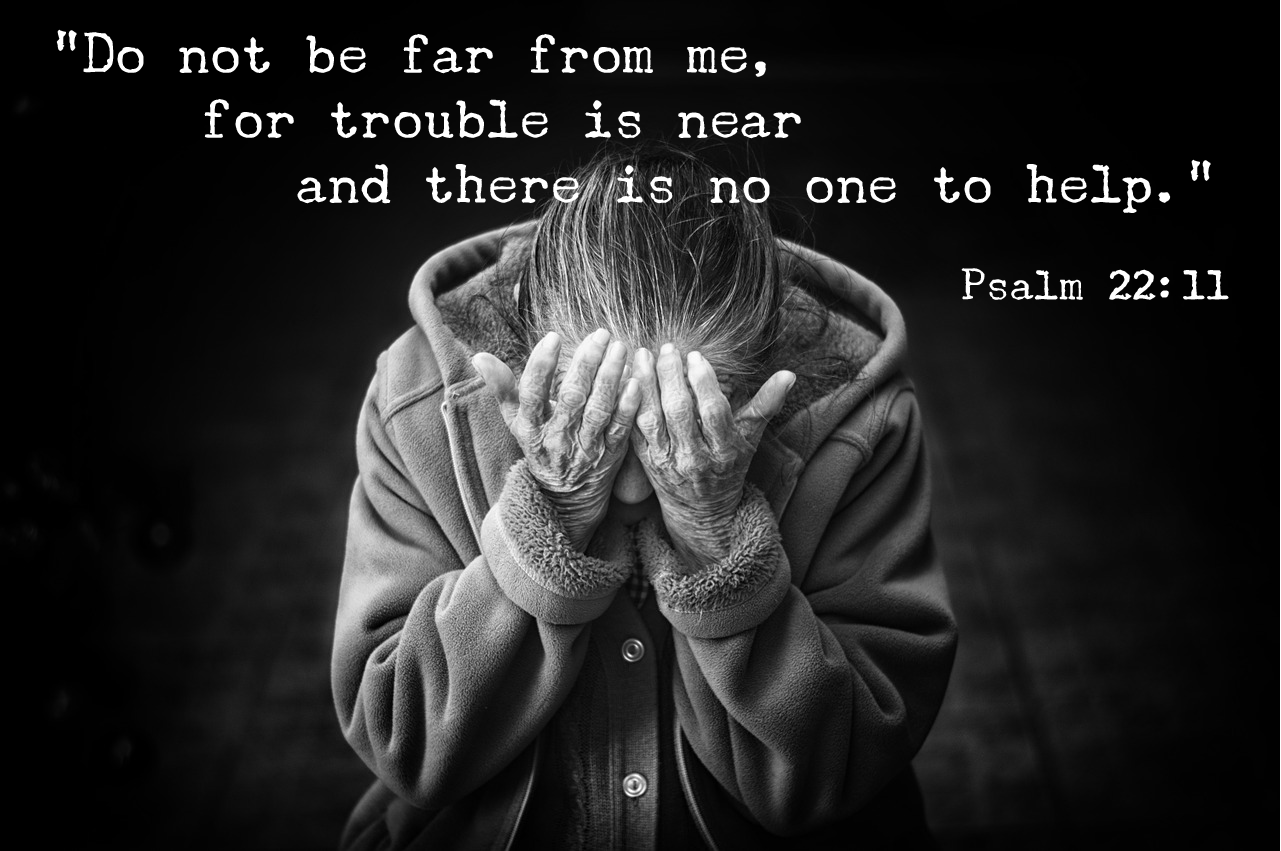
The Psalms are poem-songs that seek to articulate that which is beyond words, underneath them, that which surpasses the power of language. Today’s psalm is one of disorientation: a prayer for help, guidance, illumination, salvation and justice. While containing a lament of despair in God’s absence, it’s not the end of faith, but rather faith in real time, when the rubber meets the road of life.
Uttered out of gut-wrenching aguish, the psalm is the cry for help of one who knows what it is to be bullied by his enemies, rejected by her community, and abandoned by God. It opens in verse 1 with a declaration of lament and despair. From that first utterance, the entire tension, and the very mysterious power of psalm 22 is between a plain assertion—“you are far”—and a lowly request—“be not far.” The psalmist tells of his desolation and, at the same time, does not cease remembering and invoking God.
The psalmist is attacked by enemies, as one attacked by wild animals; circled by adversaries like bulls ready to pounce and a lion ready to devour. Despair is what she knows, the raw feeling that comes from losing hope. It’s the bleak experience of living without the comforting expectation of something desired (which is simply another way of describing hope). It can be related to the end of a relationship (romantic or other), sickness, illness, pain, suffering, loss, or even the imminent – and maybe unavoidable – threat of death.
The experience of the psalmist is one we all can relate to, as it’s part of the human condition. God seems distant, while the threat, suffering and enemies are all too close. And then something surprising happens in verse 19. What happens exactly and what God has done remains as unclear as the original cause of the psalmist’s suffering. How does the poet walk back from the precipice of despair by himself? The psalm implies that it’s through the power and process of historical memory: the psalmist consoles himself by remembering that God has helped his people in the past. They cried out for help, and God helped them. In the slavery of Egypt. At the edge of the sea with Pharaoh’s army thundering closer. In the dry hunger of the desert. In the attacks of foreign nations like the Canaanites and the Philistines. God will provide relief because he has done so in the past. This hope reorients the psalmist, and the contagiously spread to inspire and resurrect the community.
Questions for the practice of Examen & Contemplation
- What strikes or shimmers for you in this passage?
- When have you heard this psalm before?
- What does Psalm 22 say to you about the suffering of other human beings, either those you know or those who are different from you?
- Does it help you in some way to pay attention to them?
- What does Psalm 22 say to you about you own difficulties, and the hard times you sometimes go through?
- How does this psalm feed your soul?
Download a study sheet for the Psalm which we’ll use in our class on the Vocabulary of Faith: HERE